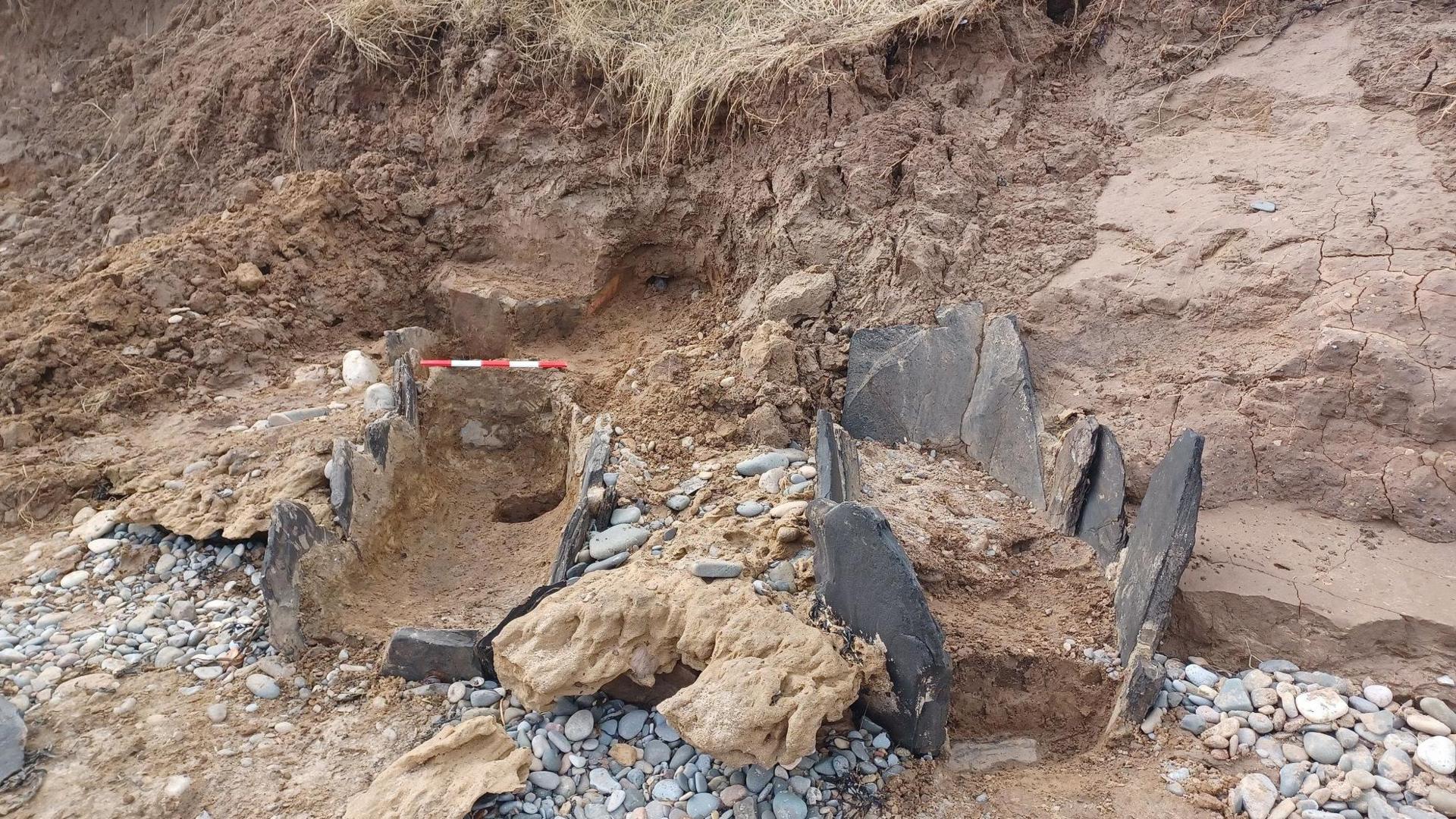Church and graves threatened by coastal erosion
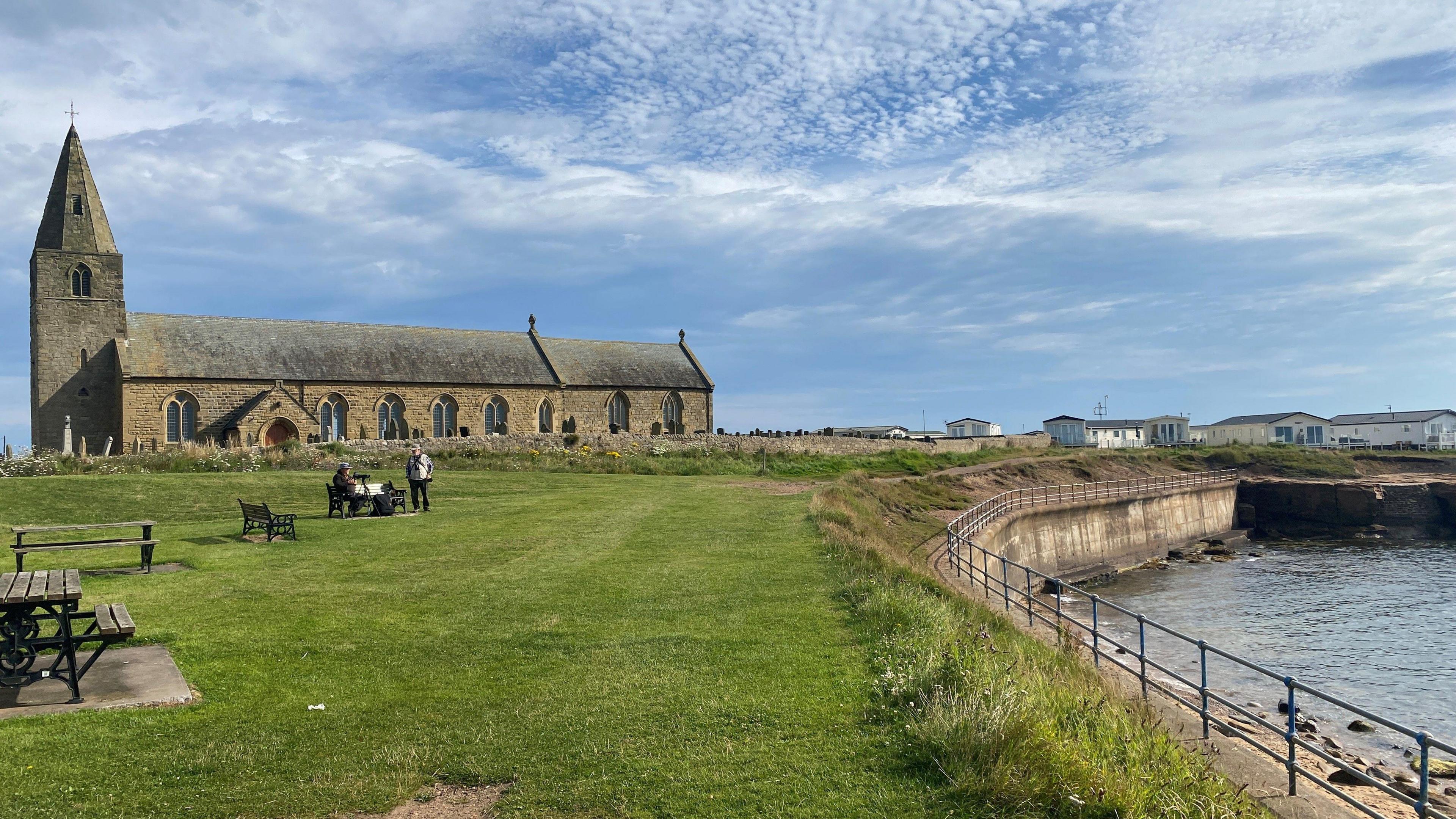
The seawall protecting St Bartholomews was built in the 1950s
- Published
A wall protecting a Grade I listed church needs replacing to stop its graveyard, or even the church itself, falling into the sea, a vicar has been told.
St Bartholomew Church in Newbiggin-by-the-Sea, Northumberland, is just a few metres from the coast, which has suffered increased erosion this year.
The Reverend Anthony O'Grady said: "We do need action soon to protect the graveyard and the church for future generations."
Northumberland County Council said it had secured funding for a detailed study of the sea defences.
"We first became aware of a problem at the end of 2023 when I was approached by the Environment Agency and Northumberland County Council to make us aware the current sea defence wall in front of the church needs replacing," Mr O'Grady said.
"You can see elements of decay already at the base of it, it's beginning to crumble."
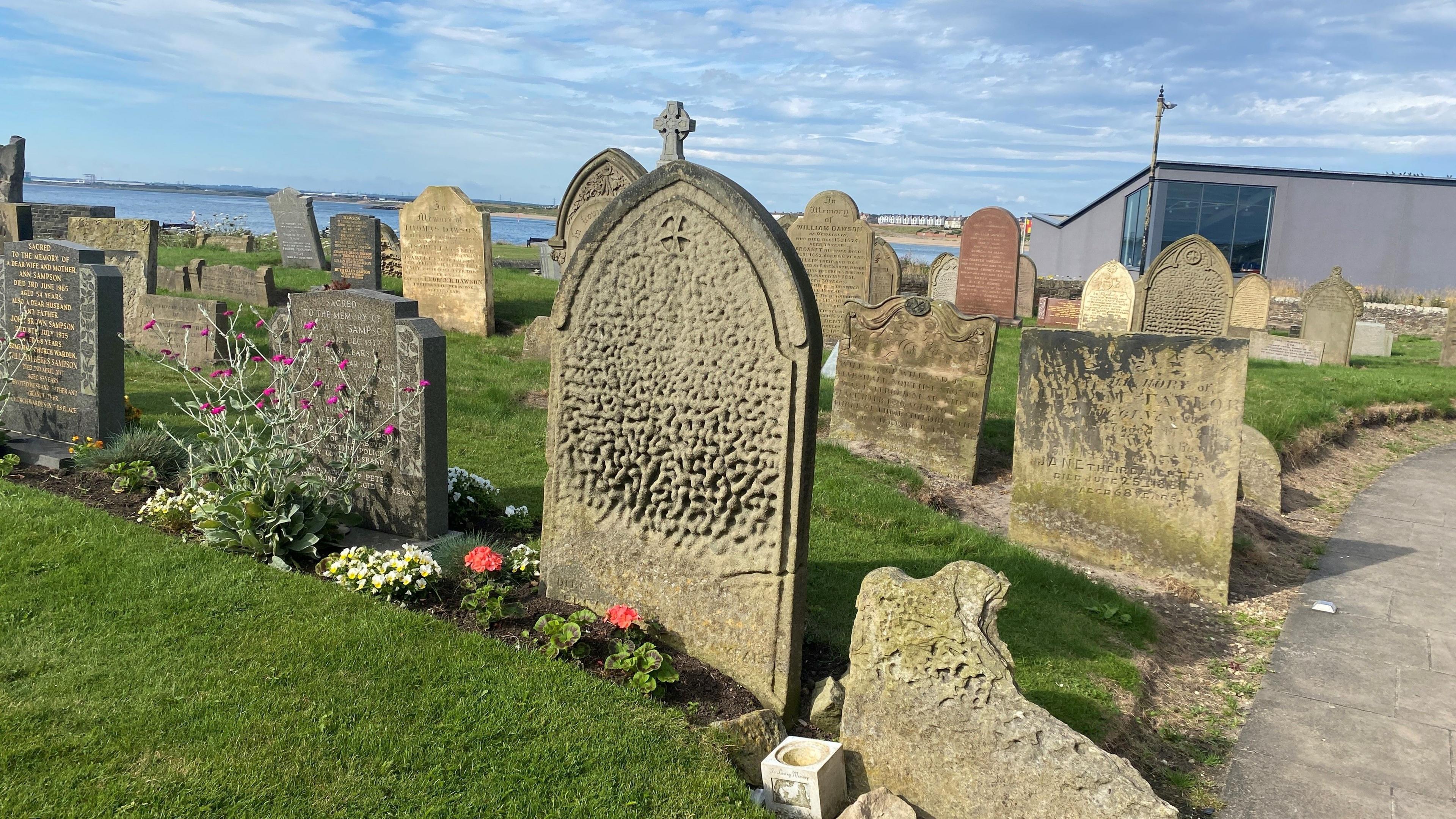
It is feared coastal erosion will eventually take the graveyard
Coastal erosion at Church Point dates back at least a century due to a combination of wave movement and mining subsidence.
The issue was raised 20 years ago in the House of Commons, external and again in July 2024, external by the area's MP Ian Lavery.
Major storms in the 1950s caused significant erosion of up to 50ft (15m) in some places, rapidly lowering sand levels between Bridge Street and Church Point.
Mr O'Grady said: "There are older people in the community who can remember when you could walk quite a distance out from the church to the sea."
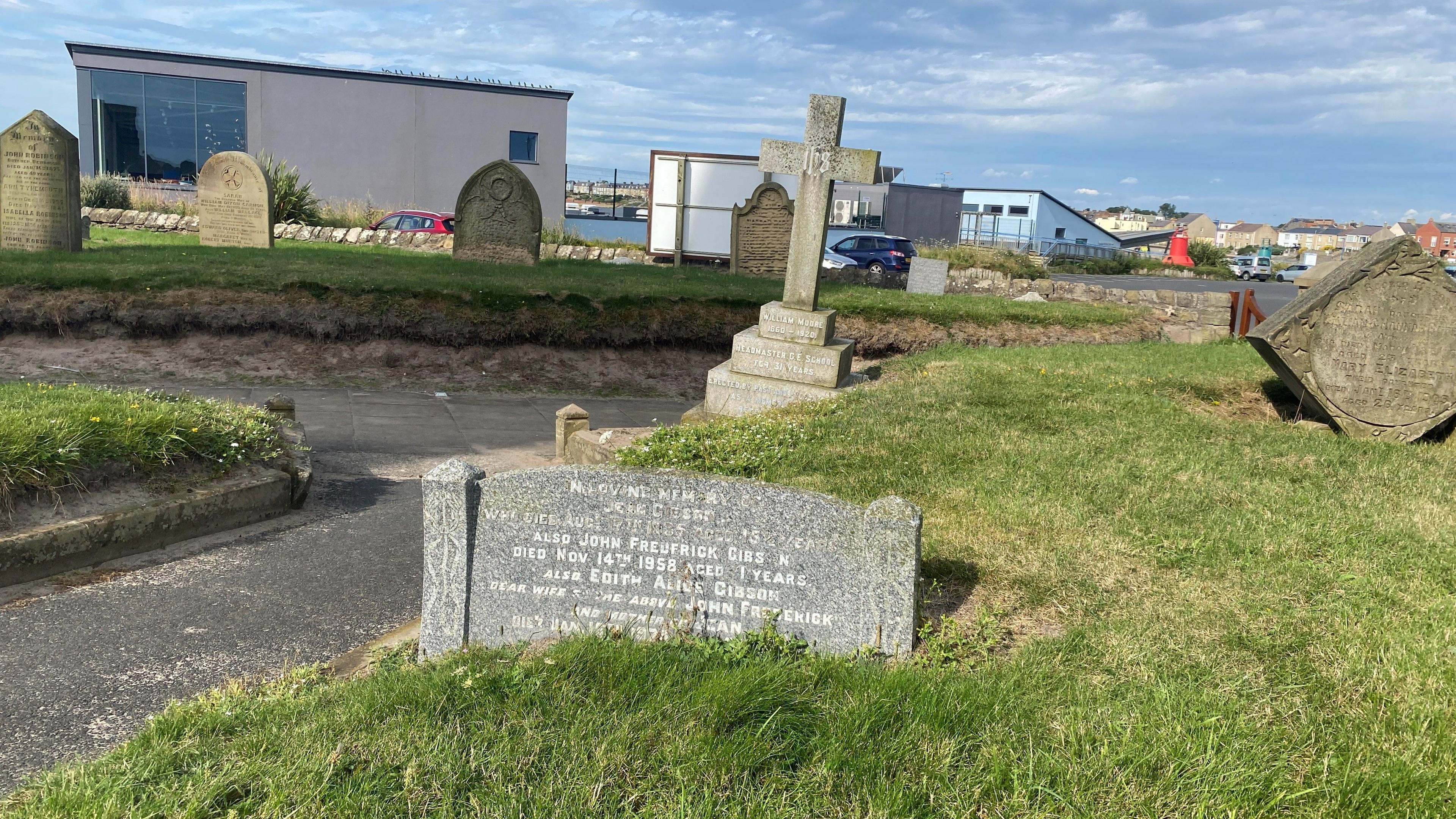
The church is built on bedrock but the sandy soil of the graveyard is constantly shifting
In a statement Northumberland County Council said: "Coastline inspections have revealed that the Little Bay seawall in Newbiggin is gradually being compromised.
"If the seawall were to fail, the cemetery and eventually the church itself would be at risk from coastal erosion.
“The council is working with the Environment Agency and the church to source funding, to ensure the seawall's long-term stability and safety."
Follow BBC North East on X (formerly Twitter), external, Facebook, external and Instagram, external. Send your story ideas to northeastandcumbria@bbc.co.uk.
More stories from BBC North East and Cumbria
- Published26 March 2024
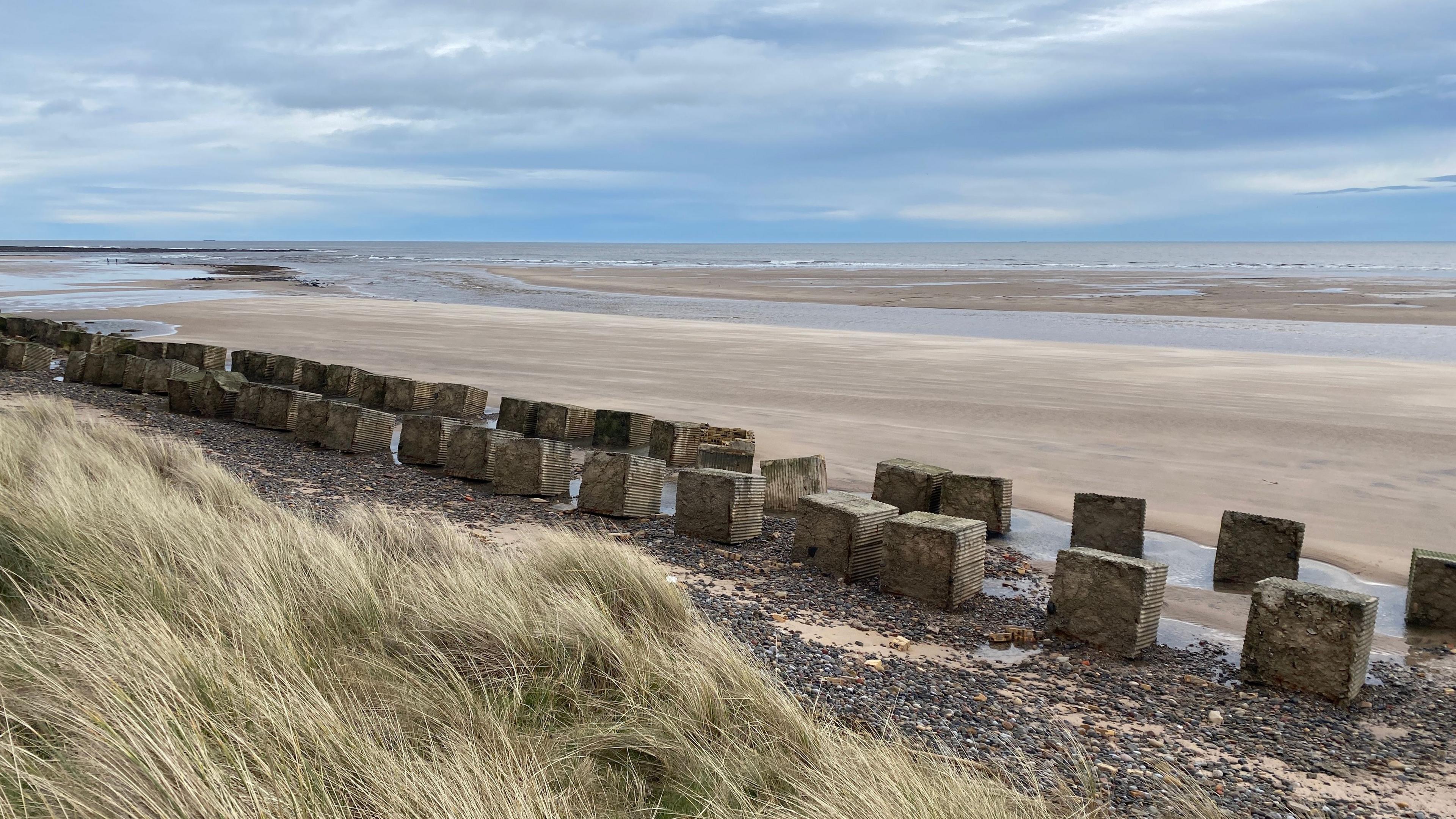
- Published19 March 2024
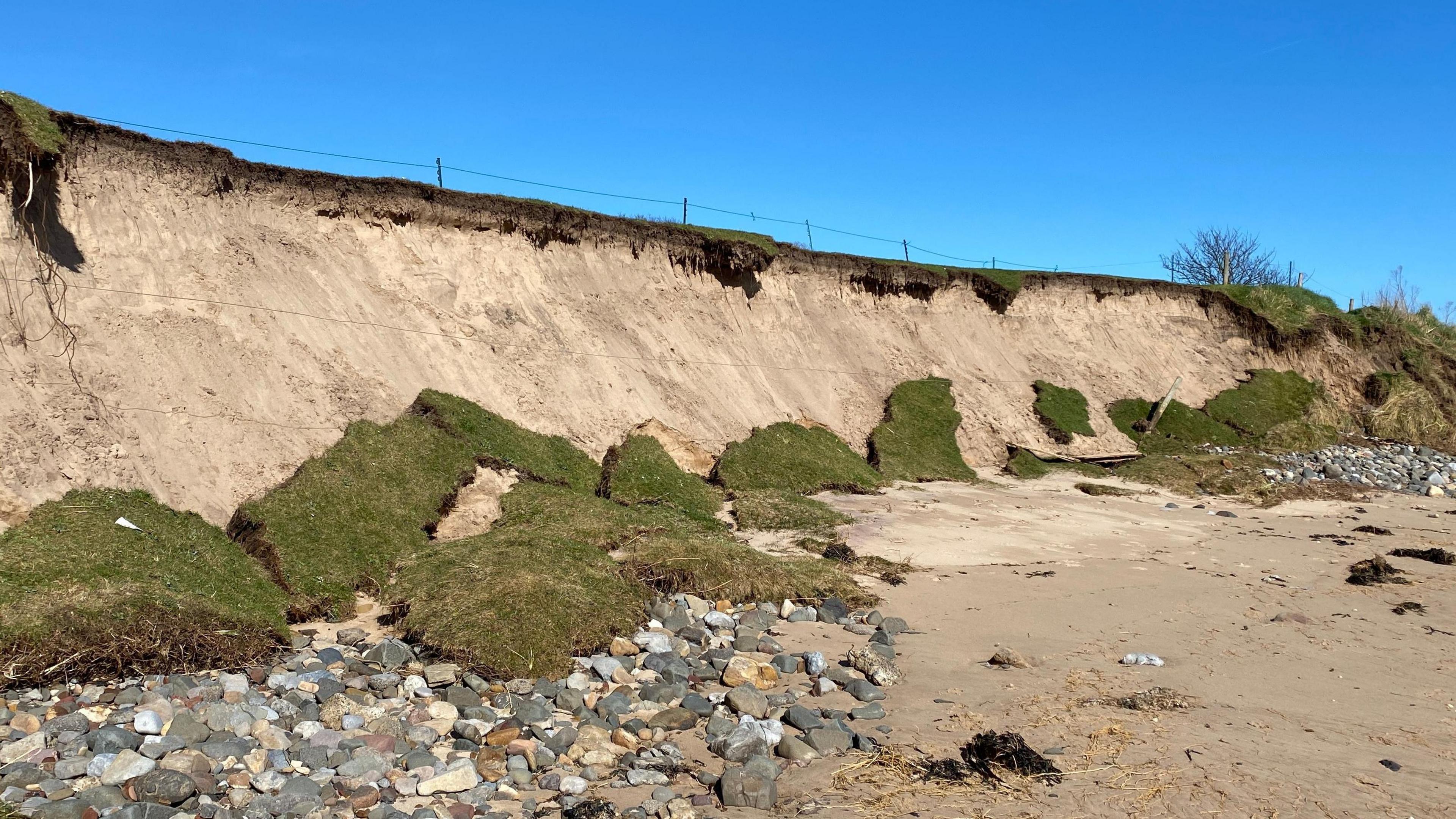
- Published28 July 2022
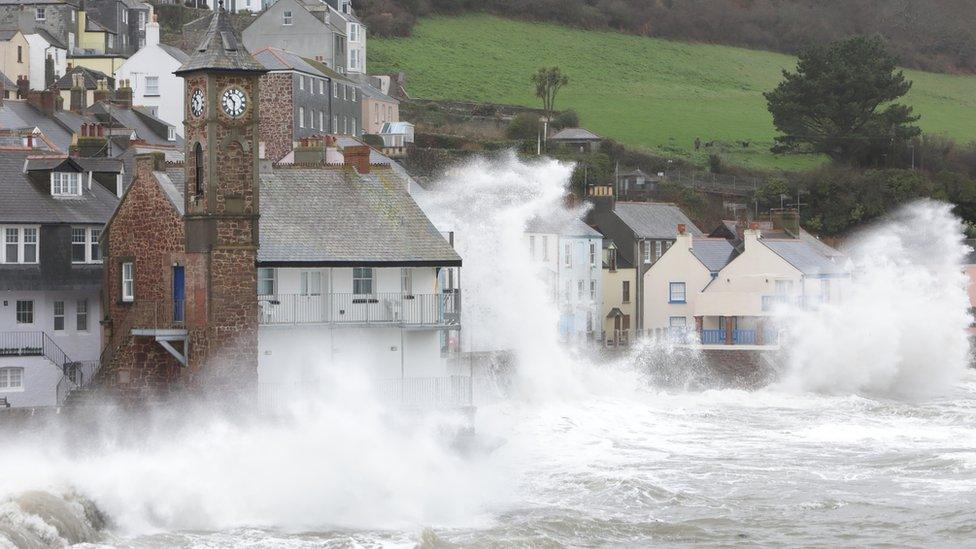
- Published10 June 2024
